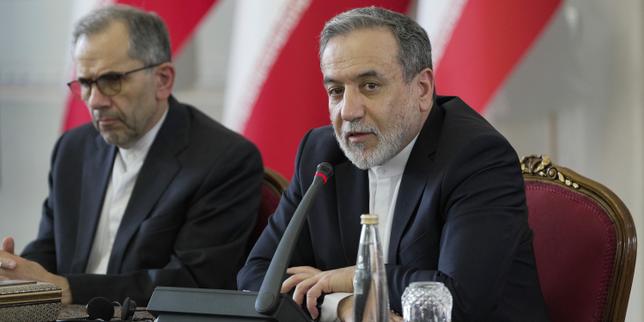

In a world where complex international relations continue to shape the global landscape, two notable diplomatic events are unfolding, promising moderate shifts towards dialogue and cooperation. These developments, characterized by their distinct contexts and parties involved, emphasize the ongoing efforts to foster mutual understanding and rapprochement on the geopolitical stage.
Firstly, the scene is set in Iran, where renewed discussions concerning the country’s nuclear program are slated to take place. These talks mark a significant diplomatic endeavor, as Iran engages with France, Germany, and the United Kingdom following a period of heightened tensions. Scheduled for July 25 in Istanbul, this initiative occurs shortly after a recent military conflict, referred to as the “twelve-day war,” where Israeli forces targeted Iranian military and scientific facilities linked to atomic weapon development. This engagement indicates a willingness from Iran and its European counterparts to return to the negotiating table, aiming to reach agreements that promote stability and reduce nuclear proliferation risks.
The revival of these talks symbolizes a crucial step toward diplomatic resolution, providing a platform for discussing Iran’s nuclear ambitions and ensuring compliance with international norms. The international community watches with cautious optimism, recognizing that a peaceful diplomatic approach is vital for fostering regional stability. The dialogues illustrate a shared determination to navigate the challenges that have traditionally strained relations between these nations. This negotiation could potentially lead to a broader agreement, contributing to global non-proliferation efforts and promoting peace.
Meanwhile, across Eurasia, the pivotal China-European Union summit is underway, bringing attention to another crucial sphere of international diplomacy. This meeting, however, opens amidst discernible tensions and modest expectations, a reflection of the complex and occasionally strained interactions between China and the EU. The backdrop to this summit includes issues such as trade balances, human rights concerns, and regional security matters, all contributing to the cautious atmosphere surrounding the talks.
Despite encountering resistance from the European side, the Chinese delegation is seeking re-engagement and dialogue, signaling a potential shift towards improving bilateral relations. Through patient negotiation and understanding, both parties aim to address pressing concerns, reconcile differences, and explore avenues for collaboration. This summit embodies the intricate web of global diplomacy, where maintaining open channels of communication is essential for overcoming challenges and promoting beneficial partnerships.
As these diplomatic interactions unfold, they underscore the enduring importance of dialogue in addressing global issues. Both the Iranian negotiations and the China-EU summit illustrate how complex geopolitical dynamics are navigated through patient and mindful engagement. The involved nations exhibit a commitment to pursuing peaceful solutions and sustaining diplomatic dialogue to forge paths toward mutual understanding and cooperation.
In conclusion, these international developments showcase the global community’s reliance on diplomatic initiatives to manage tensions and promote collective security. Through open and constructive discussions, nations can work toward shared goals, fostering global peace and stability. As these processes continue, they serve as reminders of the potential for diplomacy to bridge divides and create harmonious international relations. The world observes with hope, mindful of the power of engagement to transform challenges into opportunities for collaboration.
Source: {link}
